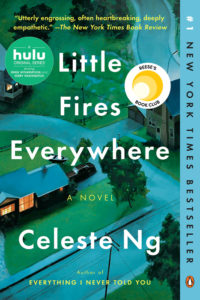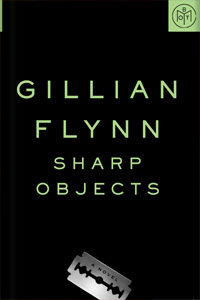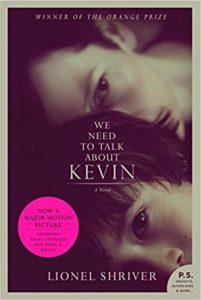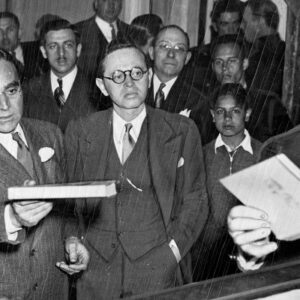Imagine this scenario: You’re in your home after a long day. Dinner is done, the dishwasher whirring in the kitchen, the children are in bed and finally, you and your partner have time to sit down, put your feet up and watch something on your streaming service of choice.
After some discussion, you find a movie about a woman who discovers her husband is secretly a serial killer—you know the kind of movie I’m talking about.
An hour and a half flies by and you’re entranced, entertained and then it’s done. Satisfied with the conclusion you click off the television and turn to your partner and say, ‘That would never happen to me. I’d know if you were out killing people while I slept.’
And he laughs. It’s a bit of a strange laugh, not like a ‘ha, ha,’ you’re so funny laugh. It’s a dry laugh, a laugh that contains in its subtle tones, something dark and secret.
‘What?’ you ask, ‘don’t you think I’d know?’
He turns to you, your eyes meet and he says, ‘you don’t know everything about me.’ And then he holds your gaze, just long enough for you to feel a creeping sense of discomfort. Right at the point you’re actually starting to worry, he bursts out laughing, genuine laughter now, ‘course you would know. We’ve been together forever. You know everything about me.’
Together you close up the house and check on the children asleep in their beds and then you get into bed and turn off your bedside lamp. Next to you, he begins to snore but you lie awake in the dark, staring at the slight glow on the ceiling from the streetlight outside, wondering exactly how well you do know your partner of five or ten or twenty years. ‘Do I know you?’ you think. ‘Do I really know you?’
And in that question lies the reason for every suspense novel I’ve ever written.
At some point in each of my novels, a character will be forced to question exactly how well they know someone they’re with, someone they think they love and understand. It may be a husband or wife, lover or friend or it may be their own child. But that first question leads them onto other questions and soon, everything they thought they knew, is challenged.
Most people love a good secret exposed. We gossip about people we know, dissect the stories of those who found themselves attached to cheaters and liars. We read about famous people who had no idea their partner was with someone else until they were exposed by the paparazzi. And when we do, we know, without a doubt, that something like that could never happen to us. You don’t pledge to love someone forever and in the back of your mind think, ‘you’re probably a secret, gambler, liar or murderer. You don’t have a child with someone and think, ‘you’re capable of stealing this child from me, of turning him or her against me. But there are those of us who think like that all the time, who look at those around us and wonder, ‘what are you hiding?’ because we’re pretty convinced that everyone is hiding something. It’s best that people like that become writers.
Readers who enjoy suspense novels take great pleasure in discovering the real secret of the story, the who and the why. Some will leave reviews, crowing about guessing the truth from the very beginning. Readers of these novels like to think that they would not be as easy to fool as the protagonist. They would know who was behind it all. And if that’s the truth then of course they would know if something was being kept from them in their own lives. If there was a secret that could shatter their world, it would be obvious before anything tragic occurred. But those readers, like all of us, also have a tiny niggling suspicion they don’t really want to think about. They know, like we all do, that it’s possible to be oblivious. It doesn’t mean you lack intelligence or that you refuse to see what’s right in front of you. It just means that it’s easier to believe in those you love, to trust them.
My novel, The Boy in the Photo, began with questions about how well you actually know your partner, and moved on to questions about whether or not it was possible to have no real idea who your child is.
As a writer of thriller and suspense, I am also, obviously, a great reader of the genre. I love those novels where the protagonist spends her days questioning what she does or does not know about her life and those in it. So here are six books where I spent my reading time questioning the protagonists, looking for clues as to what the truth was and ultimately understanding that nothing is really ever what it seems.

Am I Guilty?, Jackie Kabler
A baby is dead—a mother accused of gross negligence and surrounded by a group of people who don’t seem trustworthy from the very first chapter. Thea has a wonderful life with everything her heart desires until the day she makes a fatal mistake. But was it her mistake? What is her best friend, her husband, her former nanny hiding from her and why can’t she remember anything at all? I liked that I felt a little distanced from Thea throughout the novel. It allowed me to judge her along with everyone else until I had to start questioning myself and what I understood was the truth.

Little Fires Everywhere, Celeste Ng
A perfect family in a perfect suburb have their lives upended by the arrival of a single mother and her child. I loved how tightly Elena is holding on to everything she grew up with and holds dear. I have to admit that I saw myself in her need to control everything. Her life is a filtered family portrait with all the blemishes airbrushed out and the arrival of single mother Mia throws everything in chaos. So many lies and so many secrets all revealed in this slow burn.

The Therapist, B.A. Paris
Alice and her boyfriend Leo move into a beautiful home in a gated community called The Circle. Alice is determined to make friends in her new environment, but learning the truth about the house she is living in completely changes her perspective. She cannot help asking questions, needing to know more about the woman who lived there before her, her death and the therapist who played such a big part in her life. Alice begins to doubt everything she knows about her boyfriend, her friends and even herself, dragging the reader along with her in her quest to solve the mystery.

Sharp Objects, Gillian Flynn
A sense of unease fills this novel from page one. Camille returns to her hometown to cover the unsolved murder of a preteen girl. It’s not an assignment she wants, preferring to avoid her family and her memories. Her recollections of her disturbing, abusive childhood and the death of her sister make this a compulsive read. Her own fragile mental state and self- harm force the reader to question her even as she questions herself.

We Need to Talk About Kevin, Lionel Shriver
To be honest-I hate/loved this novel. I couldn’t connect with Eva who is a woman who should never have had children. I was horrified by Kevin’s crimes and his obvious psychopathy but at the same time, desperately sorry for a child raised by someone like his mother. The idea that Eva cannot see herself for who she is was fascinating. Despite disliking the characters, I couldn’t stop reading in an attempt to figure out how exactly Kevin came to be Kevin. Still a novel I remember years later.

Room, Emma Donoghue
This is a novel drawn from the headlines that plays on our worst fears about our neighbors. The idea that something so heinous could be happening right next door makes for compulsive reading.
The novel has a special mother/child relationship at its heart. In Room, Ma has created a whole world for her child to grow up in, despite them both being confined in one single room. Her love for him is palpable and beautiful. Her desire for him to have a better life is deeply touching.
I read this in two days, desperate to know the whole story and then even more desperate to see a resolution. The child as narrator allowed me to immerse myself in the novel even as I questioned Jack’s version of things.
***


















